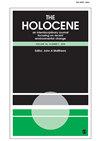对亚述运河系统去功能化的地质考古调查揭示了美索不达米亚北部晚全新世土地利用的转变
IF 1.8
3区 地球科学
Q3 GEOGRAPHY, PHYSICAL
引用次数: 2
摘要
在亚述人统治美索不达米亚北部(今伊拉克北部)期间,修建了复杂的运河系统,以增加可耕种土地的面积,改善尼尼微腹地和其他主要城市中心灌溉水景上的人员和货物流动,目的是为帝国带来社会经济繁荣。然而,超地区政治不稳定最终导致亚述国家在公元前七世纪末迅速垮台,导致运河系统迅速废弃。在这项研究中,我们通过考古、沉积学和微观形态分析的方法,研究了Sennacherib国王的Khinis运河系统(公元前705–681年,伊拉克库尔德斯坦西北部地区)三部分的自然和人为填充物在废弃后的形成过程。我们确定了水层沉积物、干燥特征、崩积砾石取水口和牧业占用层,将沉积物固定在放射性测年中,并将其与已知的区域气候历史联系起来。对土壤地层证据的解释突出了运河使用、废弃和重新利用的后续阶段,反映了土地利用从农业向畜牧业的转变,以及当地古代社区对全新世晚期气候变化和地缘政治事件的动态适应和复原力。本文章由计算机程序翻译,如有差异,请以英文原文为准。
The geoarchaeological investigation on the defunctionalisation of an Assyrian canals system reveals Late-Holocene land use transitions in Northern Mesopotamia
During the Assyrian rule over Northern Mesopotamia (present-day northern Iraq), complex systems of canals were built to increase the surface of cultivable land and improve the movement of people and goods across the irrigated waterscape of the hinterland of Nineveh and other major urban centres, with the aim of granting socio-economic prosperity to the empire. Nevertheless, supra-regional political instability eventually led to the rapid downfall of the Assyrian state during the late seventh century BCE, causing the swift abandonment of the canal systems. In this study, we examine the post-abandonment formation processes of the natural and anthropogenic infillings of three portions of King Sennacherib’s Khinis canal system (705–681 BCE, northwestern Kurdistan Region of Iraq) through means of archaeological, sedimentological and micromorphological analyses. We identify water lain sediments, desiccation features, colluvial gravel intake and pastoral occupation layers, anchoring the deposit to radiometric dating and contextualising it against the known regional climatic history. The interpretation of pedostratigraphic evidence highlights subsequent phases of use, abandonment, and repurposing of the canals, reflecting shifts in land-use from agriculture to pastoralism and dynamic adaptation and resilience of the local ancient communities in response to Late-Holocene climate changes and geopolitical events.
求助全文
通过发布文献求助,成功后即可免费获取论文全文。
去求助
来源期刊

Holocene
地学-地球科学综合
CiteScore
4.70
自引率
8.30%
发文量
106
审稿时长
4 months
期刊介绍:
The Holocene is a high impact, peer-reviewed journal dedicated to fundamental scientific research at the interface between the long Quaternary record and the natural and human-induced environmental processes operating at the Earth''s surface today. The Holocene emphasizes environmental change over the last ca 11 700 years.
 求助内容:
求助内容: 应助结果提醒方式:
应助结果提醒方式:


